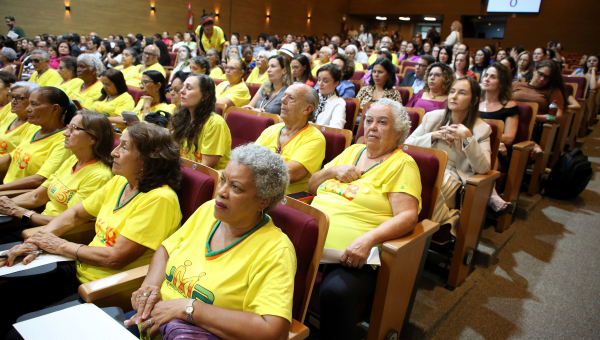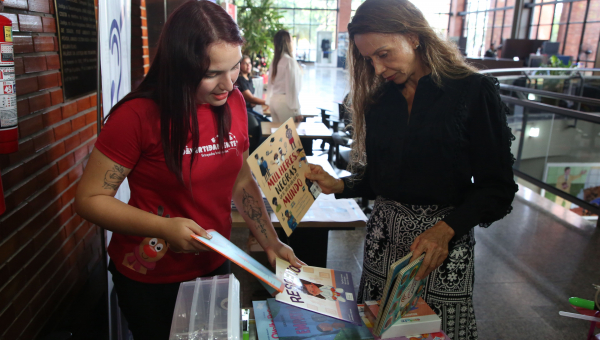
In an afternoon full of meaning, the Judiciary of the state of Tocantins, through the Permanent Commission for Accessibility and Inclusion and in partnership with the Superior School of the Judges of the State of Tocantins (Esmat), held a remarkable event to celebrate inclusion and accessibility on Monday (December 2nd) in the auditorium of the Court of Justice of the State of Tocantins (TJTO). The event, in line with the celebration of the International Day of People with Disabilities (December 3rd), offered in-depth reflections and practical experiences on diversity and inclusion in the corporate environment.
Opening
The opening ceremony was led by Justice Pedro Nelson de Miranda Coutinho, President of the Permanent Commission on Accessibility and Inclusion, who stressed the value of active listening in the construction of inclusive policies. “No topic could be more relevant this year, as it was chosen by listening to people with disabilities and different people. A true act of respect for the diversity of disabilities,” he said.
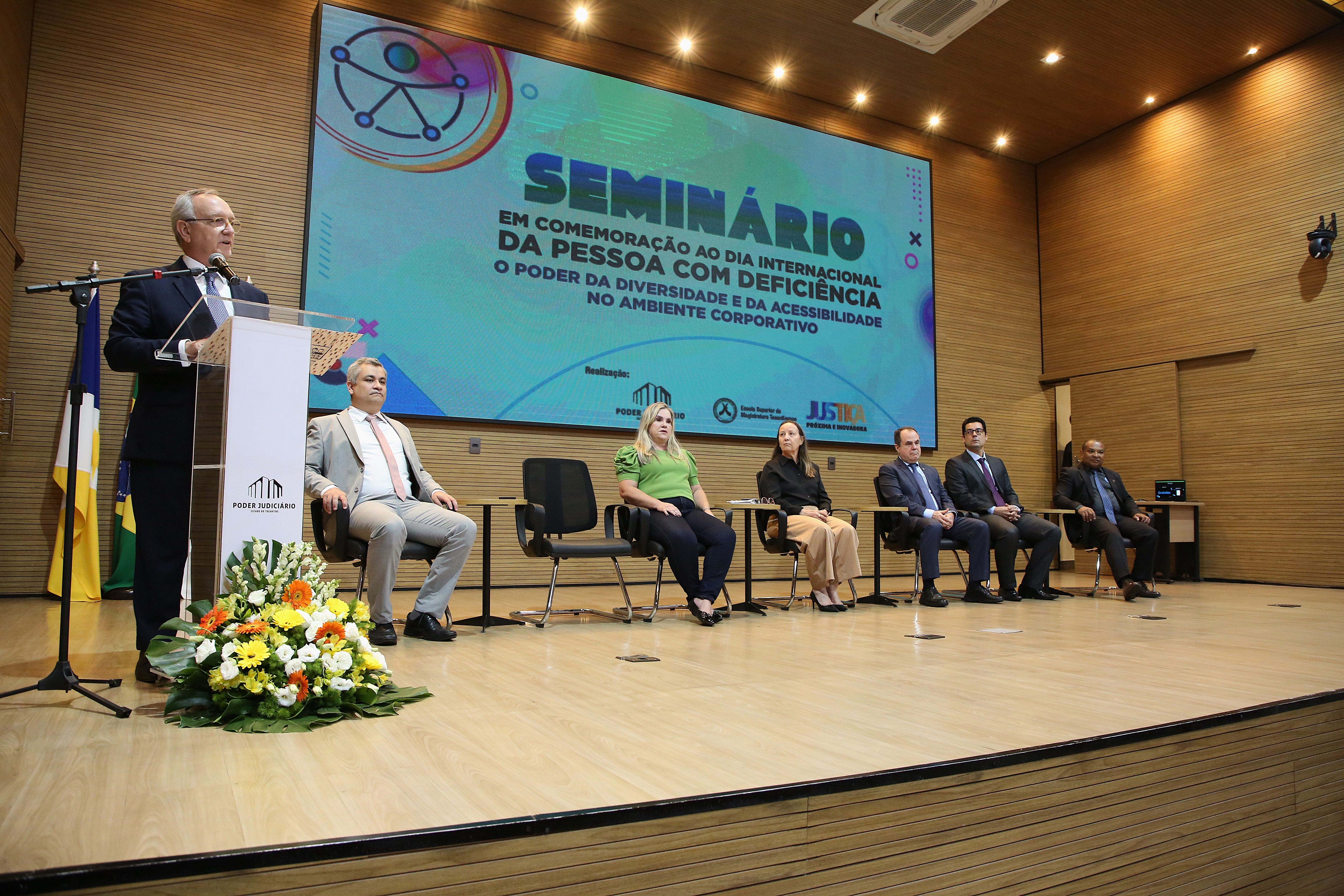
He also mentioned Law 14.992 of 2024, which aims to expand the inclusion of people with Autism Spectrum Disorders (ASD) in the job market, stressing that inclusion starts at the bottom.
“We know that inclusion has to start well before that, through access to inclusive education and health services, guaranteeing that the needs of people with disabilities are met in full so that they can develop with dignity and enter the job market with decency,” he said.
Justice Marco Villas Boas, General Director of Esmat, emphasized the importance of training in raising awareness.

“Training people to promote inclusion is a fundamental step, because knowledge transforms not only practices, but also hearts. We are here to reaffirm that accessibility and diversity are not only values, but also essential rights that strengthen democracy and justice,” he said.
Justice Maysa Vendramini Rosal, Chief Justice and President-elect of the TJTO, emphasized that “accessibility goes beyond the physical suitability of spaces. It involves promoting an inclusive culture that allows everyone to be included and feel part of the process”.
Lecture and sensorial coffee
The talk, given by Marcelo Pires, CEO of the Consolidate Diversity in Business, offered a critical reflection on empowerment and business practices that treat inclusion superficially. “The reason and the importance of relating to people are to understand people,” Marcelo said, stressing that virtuous values are what connect humanity.
Moderated by labor Judge Suzidarly Ribeiro Teixeira Fernandes (TRT-10), the talk also highlighted the responsibility of companies to promote inclusion out of conviction, rather than legal obligation. “May you [Marcelo] succeed in sensitizing more and more entrepreneurs to hire people with disabilities, not just so they don't get fined or sued, but also because they see the other person as a human being, and not their disability,” said the Judge.

After the talk, Marcelo led the Sensorial Coffee, an interactive experience that invited participants to experience, for a few minutes, situations that simulated some of the challenges faced by people with disabilities, promoting reflections on empathy and inclusive communication. The dynamic involved blindfolding part of the group and, in another part, restricting the sound input through headphones.
While the participants reported transformative experiences, people with disabilities shared experiences that highlighted the relevance of inclusive practices. Michele Veras, a law student at the Federal University of the state of Tocantins (UFT), who has low vision, and Poliana Ferreira, or Polly, as she prefers to be called, a journalism student who is blind due to glaucoma, acted as assistants during the activity. Both highlighted the impact of the role reversal in helping non-disabled people face challenges related to visual impairment in a simulated way. “People don't explain what they're delivering, they just give it and that's that,” Polly observed.
For Michele, moments like this reinforce the need for continuous awareness-raising. “It's challenging to manage a person with a disability, even for those of us with disabilities. I work with inclusive events and I still find it difficult. This reflects how society is still not prepared to deal with these issues,” she said.
Dinalva Tavares, an employee of the Pedagogical Support Center for People with Visual Impairments in the state of Tocantins, who is blind, considered the experience to be smooth as far as feeding was concerned. Leidimar Bastos, also a CAP employee, who took part blindfolded, identified the lack of communication as the biggest obstacle. “It was easy for me, because I already work with this and I get along with Dinalva a lot. What wasn't easy was the fact that someone handed me a glass and put it in my hand without explaining what it was. I just ate it. But what I noticed most is that many people aren't prepared to deal with this; some were lost, without guidance,” Leidimar reflected.
Round table
The round table on “Beyond Barriers” brought together the voices of professionals with disabilities, such as Pedro Henrique Nunes, Agnaldo Quintino and Marques Elex, who shared the challenges and opportunities they face in the job market. It was a rich space for exchange, where personal experiences revisited urgent questions about inclusion and accessibility.

“Just as important as or even more important than accessibility, is the goodwill of the people around us. Since the range of types of disability is infinite, with diverse needs, it is difficult to achieve perfect accessibility,” said Pedro Henrique.
Marques Elex said that he wants to see capacitism consigned to the past and invisibility shattered by full and effective inclusion. “Just as Martin Luther King nurtured a dream, I also nurture a dream: that capacitism is thrown into the cellars of the past, and the cape of invisibility is shattered by full and effective inclusion, that this battle is won by all of us who believe in it,” he revealed.
Agnaldo Quintino highlighted the event as a historic milestone.
“Today is a historic day, at 51 years old I've never seen an event made up only of people with disabilities. It's a progress, Tocantins is moving forward,” he said.
During the panel discussion, Eva Portugal shared personal experiences of her routine as a wheelchair user, highlighting the universality of accessibility. “Accessibility is for everyone. We may need it at any time in our lives,” she said, highlighting the importance of inclusive structures in all social spheres.
The coordinator of the panel, Patrícia Idehara, underlined one of the main purposes of the event: to bring about a change in mentality in relation to hire in both the public and private sectors. “The aim is to give a 'start' to the turning of the key, showing that welfare should be the last alternative. We need to demystify the idea that people with disabilities are not efficient. They have the right to the dignity of being productive, of buying, selling, collecting taxes and making the economy turn,” she said.
Launch of the employability “D” day
The event provided another significant moment: the launch of the “D” Day for the Employability of People with Disabilities, coordinated by the National Employment System (SINE) and the State Secretariat for Labor and Social Development (Setas). Kleber Wessel, Director of Labor of Setas, pointed out that all twelve the SINE offices in the state of Tocantins will be mobilized to serve people with disabilities in a more inclusive way.
“Our intention is to triple the number of vacancies for people with disabilities, promoting a week of awareness and sensitization that goes beyond the job market, also reaching full inclusion in society. This event at the Court of Justice was a great source of learning. I leave here with more information, more awareness and even more motivation to develop this initiative,” said Wessel, emphasizing the capacity of people with disabilities, whom he described as ‘true super humans’.
Honor table
The table of honor was made up of Justice Maysa Vendramini Rosal, General Chief Justice and President-elect of the TJTO; Cleizenir Divina dos Santos, Secretary of State for Labor and Social Development, representing Governor Wanderlei Barbosa; Justice Marco Villas Boas, General Director of Esmat; Justice Pedro Nelson de Miranda Coutinho, President of the Permanent Commission for Accessibility and Inclusion; Prosecutor Juan Rodrigo Carneiro Aguirre, legal Advisor to the General Attorney’s Office; Pedro Alexandre Conceição Aires Gonçalves, the first Deputy Public Defender; and Domingos Rodrigues da Silva, President of the Commission for People with Disabilities of the BAR - Tocantins Section.






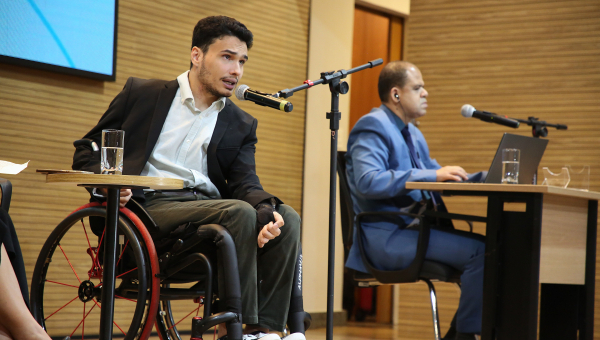



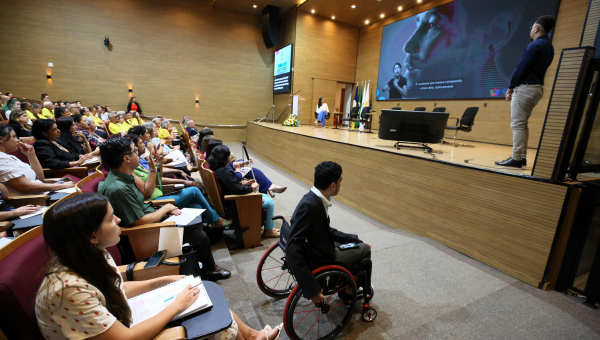
_thumbnail_thumbnail.jpg)

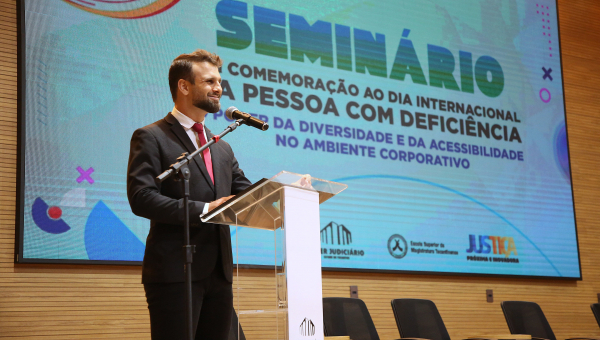


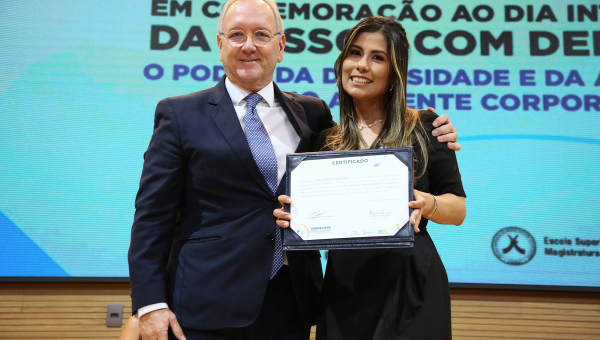


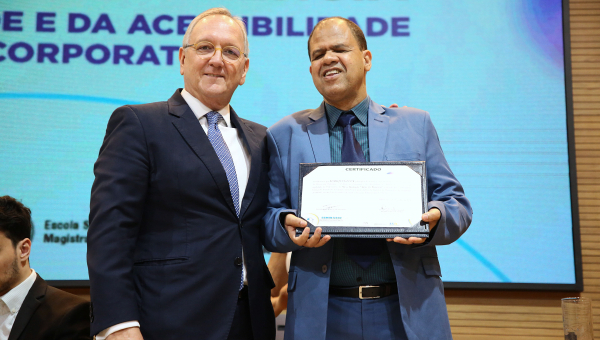







_thumbnail.jpg)
